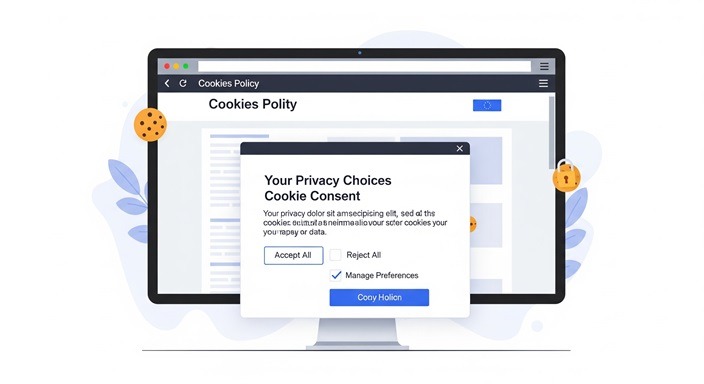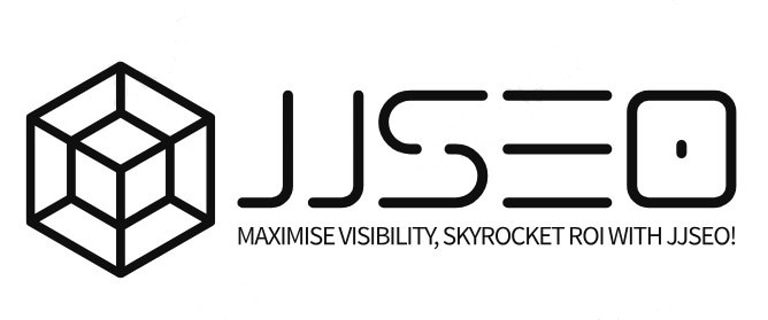SEO After Cookies: UK Privacy Rules & Small Business Reach
Discover how the end of third-party cookies and new UK/EU privacy laws are reshaping SEO and customer targeting for small businesses. Get practical compliance tips and future-proof strategies.
SMESTECHNICAL SEO
Jorge Jaroslavsky
9/19/20257 min read


Reshaping Small Business Digital Marketing in 2025
As a freelance SEO consultant working with small businesses across the UK and EU, I've witnessed firsthand the seismic shifts happening in digital marketing right now. The landscape I've been navigating for years is changing rapidly, and frankly, it's both exciting and daunting. The end of third-party cookies, combined with increasingly stringent privacy regulations, is fundamentally altering how I help my clients attract, analyse, and retain their online visitors.
Over the past year, I've had countless conversations with worried business owners asking me the same questions: "Will my website still work?" "Can I still track my customers?" "Am I going to get fined?" The truth is, these changes are disruptive, but they're also creating opportunities for businesses willing to adapt and build genuine customer trust.
Why I'm Writing About This Now
Working with clients across different sectors, from local tradespeople to e-commerce retailers, I've seen how the regulatory landscape is elevating the bar for user privacy and transparency. It's not just about European laws anymore—American frameworks like the California Privacy Rights Act (CPRA) are affecting my clients who serve international customers or use cross-border marketing tools.
What's particularly challenging is that many of my small business clients are caught off guard. They're busy running their businesses and haven't realised that the digital marketing strategies I implemented for them two years ago might now be non-compliant or simply ineffective.
The Cookie Crumble: What's Actually Happened
Let me explain what's changed in practical terms. Third-party cookies—those invisible trackers that followed users around the web and powered most of our remarketing campaigns—are essentially gone. In 2025, Google Chrome finally joined Apple's Safari and Mozilla's Firefox in blocking these cookies by default.
For my clients, this means the remarketing campaigns that were bringing back 15-20% of their website visitors are now reaching perhaps 5-8% of that audience. The attribution models I used to demonstrate ROI across different marketing channels have become less reliable, making it harder to prove which of my SEO efforts are directly contributing to sales.
I've had to completely rethink how I approach analytics and conversion tracking. Where I once relied on cross-site data to understand customer journeys, I now focus on first-party data—information collected directly by my clients' websites.
First-party vs Third-party: The Difference That Matters
First-party cookies are set by the website you visit directly. These remember logins, language preferences, and user settings—they're essential for a functioning website.
Third-party cookies, on the other hand, were set by external domains for advertising and cross-site tracking. These are what we've lost, and it's forced me to become much more creative in how I track and optimise my clients' online performance.
Navigating UK & EU Privacy Laws in Practice
UK Compliance: My GDPR Reality Check
Even post-Brexit, my UK clients are still governed by UK GDPR and the Data Protection Act 2018. In practical terms, this means every website I optimise needs:
Explicit consent for non-essential cookies (not just a banner saying "by continuing you agree")
Clear, jargon-free privacy notices that actually explain what data we're collecting
Proper records of how we're processing data and obtaining consent
Easy mechanisms for users to change their minds about data sharing
I've learned this the hard way. The ICO's enforcement actions have steadily increased since 2023, and they're no longer just targeting big corporations. I've seen SMEs receive warning letters for outdated cookie consent mechanisms or privacy notices that haven't been updated since 2019.
EU Regulations: The Opt-In Challenge
For my clients operating across Europe, the EU GDPR and ePrivacy Directive are even more stringent. Everything non-essential—analytics, marketing pixels, social media embeds—requires opt-in consent, not opt-out.
I remember working with a Manchester-based client who was selling handmade furniture across Europe. We discovered their Google Analytics setup was transferring data to US servers without proper consent mechanisms. The potential fines were eye-watering, and we had to completely overhaul their tracking setup.
International Complications
The complexity multiplies for clients targeting overseas customers. The CPRA in California, similar laws in Canada and Australia—suddenly, a small business in Birmingham needs to consider global privacy regulations if they want to sell internationally.
The SEO Implications I'm Dealing With Daily
Attribution Chaos
The loss of cross-site tracking has made my job significantly more challenging. I can no longer accurately measure how different channels work together. Organic search might be driving awareness, but the final conversion happens through direct traffic or email—and I'm losing visibility of these customer journeys.
My attribution models, which used to show assisted conversions and the full customer pathway, are now giving me an incomplete picture. This makes it harder to demonstrate ROI and justify SEO investments to clients who are already feeling the pinch from economic uncertainty.
Shrinking Audiences, Rising Standards
Remarketing audiences have shrunk dramatically. Where I once had robust segments of website visitors to retarget, I'm now working with much smaller groups. This has forced me to raise the bar on everything—content quality, user experience, and trust signals.
The silver lining? It's pushed me to become better at what I do. I'm focusing more on creating genuinely valuable content that builds trust from the first interaction, rather than relying on multiple touchpoints to nurture prospects.
Practical Solutions I'm Implementing
Making Data First-Party and Consent-Driven
I've transitioned all my clients to GDPR-compliant analytics tools. Google Analytics 4 with proper consent mode is my go-to, though I'm increasingly analysing Matomo or Plausible for clients who want to keep their data locally stored.
The key change is that I only deploy marketing pixels or conversion scripts after receiving clear user consent. This means lower data volumes, but higher quality, more compliant insights.
Cookie Banner Overhauls
I've made cookie banner and privacy notice reviews a standard part of my annual client audits. Too many businesses set these up once and forget about them. I ensure cookie categories are clearly explained, usage is transparent, and users can easily withdraw or change their consent.
I've developed a simple checklist:
Is the banner compliant with current regulations?
Can users easily understand what they're consenting to?
Is there a clear mechanism to withdraw consent?
Are we only collecting data we actually need and use?
Quality Content and User Engagement Focus
With traditional tracking methods less effective, I've doubled down on content quality and user engagement. I'm building trust through transparent, informative content that aligns with search intent and privacy expectations.
Structured data and schema markup have become more crucial than ever. With more "zero-click" searches and featured snippets, I need to ensure my clients' content can surface effectively even when users don't click through to their websites.
Transparent Lead Generation
I've moved my clients away from "data hoarding" practices. Instead of lengthy contact forms asking for unnecessary information, I focus on collecting only what's genuinely needed and clearly explaining the value exchange.
For a Leeds-based accountancy firm, we reduced their contact form from 12 fields to 4 essential ones and saw a 40% increase in form completions. Users appreciate transparency and simplicity.
Marketing Alternatives I'm Exploring
Contextual Targeting
Rather than tracking users across sites, I'm focusing on contextual targeting—serving relevant content based on the page context rather than user data. This means better keyword research, more focused content creation, and stronger topical authority.
Server-Side Tracking
I'm implementing more server-side tracking solutions for clients who need detailed analytics while maintaining privacy compliance. It's more technically complex, but it offers granular data while keeping everything first-party.
Direct Relationship Building
Email marketing, SMS (with proper consent), and gated content have become more important than ever. I'm helping clients build direct relationships with their audience rather than relying solely on web tracking and third-party platforms.
Real Client Success Story
Let me share an example that illustrates these changes perfectly. I worked with a small bakery in Yorkshire that was heavily reliant on Facebook remarketing for their online cake orders. When iOS 14.5 and then the cookie changes hit, their remarketing reach dropped by 75%.
Instead of panicking, we pivoted:
Updated their cookie consent system and switched to GA4 with proper consent mode
Created a weekly newsletter featuring baking tips and seasonal specials
Optimised their Google Business Profile with review schema
Developed locally-focused blog content about Yorkshire baking traditions
The results after six months:
40% decrease in remarketing efficiency (expected)
65% increase in email campaign open rates
25% improvement in local search rankings for unbranded queries
15% overall increase in online orders
The lesson? Building direct, transparent relationships with customers often outperforms invasive tracking methods.
What I See Coming Next
Google's Privacy Sandbox
Google's Privacy Sandbox initiative will favour contextual advertising over user profiling. As an SEO consultant, this plays to my strengths—quality content and search intent understanding become even more valuable.
SEO as a Differentiator
As "easy" digital advertising becomes more restricted and expensive, SEO expertise becomes a bigger competitive advantage. Businesses that can build trusted, authoritative online presences will thrive whilst others struggle with diminished advertising reach.
Community and Trust Building
Companies that build transparent, loyal communities will succeed as users become more willing to share data in exchange for genuine value and trust.
My Recommendations for Fellow Marketers and Business Owners
Immediate Actions:
Audit your current privacy and cookie setup—don't assume compliance
Review your attribution models and reporting—set realistic expectations
Focus on first-party data collection and email list building
Invest in quality content creation and user experience improvements
Longer-term Strategy:
Build direct relationships with your audience through valuable content
Develop expertise in server-side tracking and privacy-compliant analytics
Create transparent value exchanges for data collection
Focus on building topical authority and trust signals
Final Thoughts
As challenging as these changes are, I'm genuinely optimistic about where digital marketing is heading. The businesses I work with that embrace transparency, focus on genuine value creation, and build direct relationships with their customers are not just surviving—they're thriving.
The cookie-dependent, track-everything approach was never sustainable. These privacy changes are pushing us towards more ethical, effective marketing practices that benefit both businesses and consumers.
If you're feeling overwhelmed by these changes, remember that adaptation takes time. Focus on building trust, creating value, and maintaining compliance. The businesses that do this well will emerge stronger in this new privacy-first digital landscape.
The future belongs to marketers who can build genuine relationships without relying on invasive tracking. As someone who's navigated these changes with dozens of clients, I can tell you that whilst the transition is challenging, the opportunities for those willing to adapt are enormous.
Need help adapting your SEO strategy to the post-cookie world? I'm here to guide you through these changes with practical, compliant solutions that protect your business and grow your online presence. Get in touch for a consultation or view my service packages to see how I can help your business thrive in this new digital landscape.
Expertise
Driving organic traffic with tailored SEO solutions.
Growth
Results
Mail to: jj@jjseo.co.uk
© 2025 JJSEO. All rights reserved. | Expert SEO Consultant in Leeds
